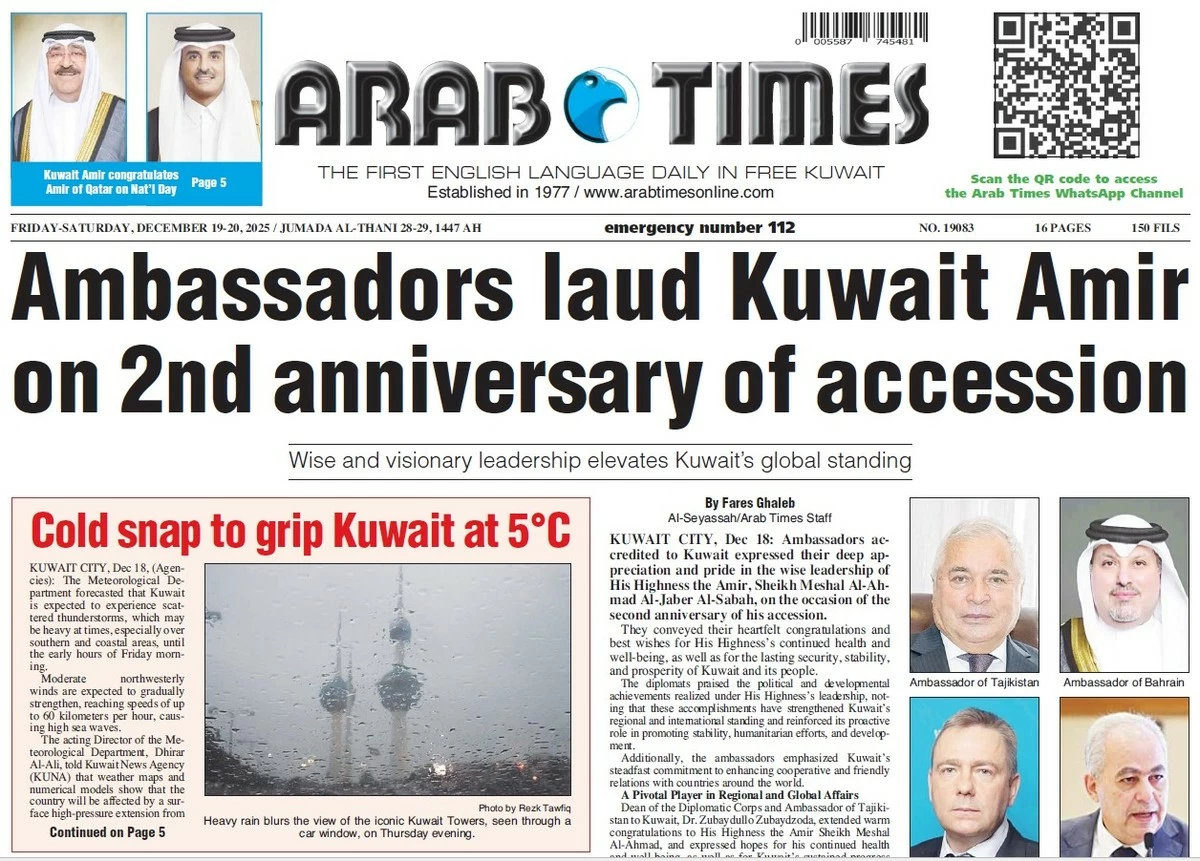30/12/2024
30/12/2024
SINCE the revolution succeeded in altering Syria’s reality and toppling its regime, it seems that the Iranian decision-maker has lost his bearings and has started issuing random statements that reflect a sense of defeat. This sentiment is evident not only in the regional situation in general but also in the so-called “Axis of Resistance”. Iran’s internal situation is no better. With the collapse of its currency Toman, public frustration with the regime has been rising. The country also faces major regional and global consequences. It is important to note that everything Iran is experiencing today was a result of deliberate calculations.
The country pushed its regional proxies to carry out violent actions, once under the guise of “liberating Palestine” starting from the Gaza Strip, and at other times destabilizing Lebanese institutions by mobilizing its Lebanese arm, and even opening a front in the south to facilitate behind the- scenes negotiations with Washington over the nuclear issue. Iran did not miss an opportunity to challenge the countries of the region. It used the Houthi group to disrupt maritime traffic through Bab al-Mandab, which led to increased confrontation between the United States and Britain over this form of maritime terrorism.
Meanwhile, Iran worked on destabilizing the situation in Iraq, and attempted to involve its sectarian groups in the massacre against the Syrian people. Iran once boasted about its ability to turn the tables on everyone in the Middle East. However, with the escape of the head of the Baathist regime from Damascus, all of Iran’s calculations proved to be wrong. As a result, Iran today has become like a drowning man clutching at a straw, represented by Russian and Chinese support. However, the winds did not blow as Tehran had hoped. The strategic calculations of Russia and China differ from those of Iran. The Russian-Ukrainian war has become more complicated, and Moscow is focused on its concerns. Meanwhile, Beijing is preoccupied with other priorities.
Both Russia and China have also realized that their cooperation with the Gulf states is more beneficial to them than aligning with Iran. Therefore, we can say that Tehran has lost the regional influence it once wielded through its network of “octopus arms” to blackmail the world. Strangely, the decision-makers in Iran still fail to recognize that the uprisings it faced since 1979 up to the present day have eroded the regime’s internal power. With the ongoing economic and financial crisis, Iran now has no choice but to return to political reasoning for managing its relations, especially with neighboring countries that have extended cooperation multiple times, only to be met with intimidation and provocation from Tehran. Given this reality, no wise person in the region could wish for the Iranian people anything but stability and a decent life, free from the crises that have plagued them for over four decades. It is time for the Iranian people to return to contributing to regional development, as they once did before 1979.
This would benefit both Iran and its neighbors, and turn Iran into an economic power capable of helping the region escape the cycle of crises caused by the unrealistic vision of “exporting the revolution.” The Iranian regime should now learn from the Gulf Arab states, which have chosen to export knowledge, prosperity, stability, and security, not just to their people, but to the entire Arab world. Perhaps the Iranian regime could benefit from this lesson. There is a clear difference between those who choose the path of reason and development and those who take the rugged road of fugitives. As the year ends, a year marked by disasters and senseless wars, we hope that the Iranian regime will rule with reason in the coming year, and work with its neighbors toward development, as well as move away from hollow slogans. The Iranian regime must understand that stability and cooperation with its neighbors are Iran’s keys to joining the world stage again.



